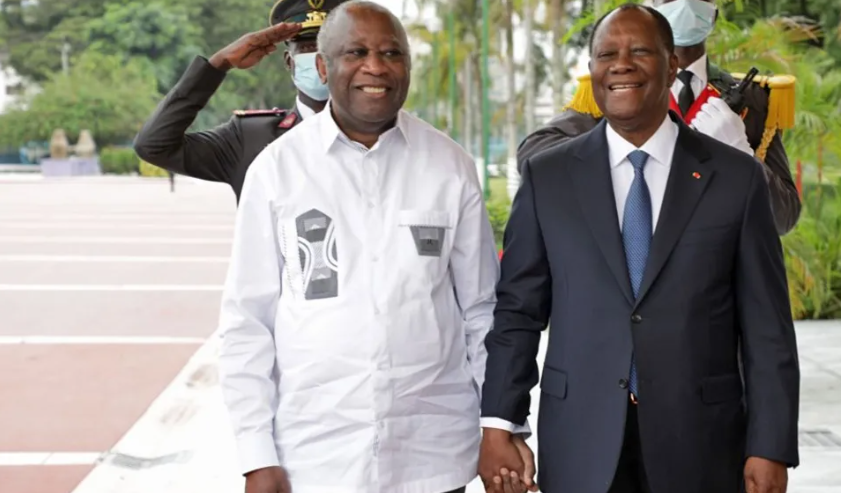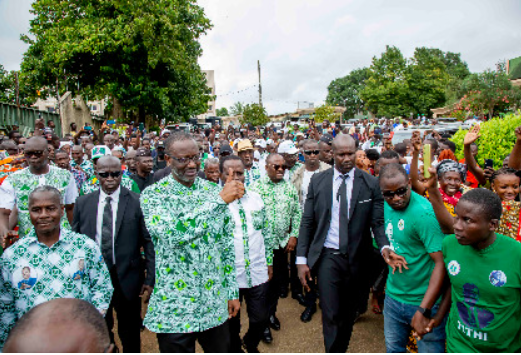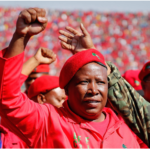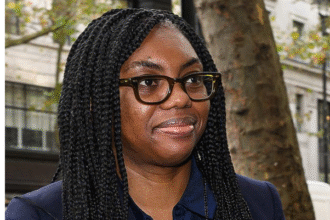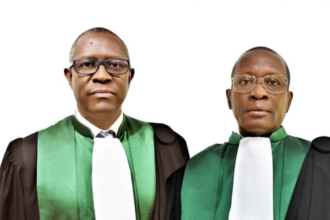By Sara Camara
Abidjan, Ivory Coast – Ivory Coast’s upcoming presidential election, slated for October, has been thrown into uncertainty following a court ruling that disqualifies prominent opposition figure Tidjane Thiam from running. The decision, based on a technicality regarding his citizenship, has ignited a debate about the state of democracy and fair participation in the West African nation.
Thiam, a former CEO of Prudential and Credit Suisse, was chosen as the Democratic Party of Ivory Coast (PDCI)’s candidate on April 17th, positioning him as a significant challenger to the ruling Rally of Houphouëtists for Democracy and Peace (RHDP). The 62-year-old’s return to Ivorian politics in 2022, after a distinguished international business career, was widely seen as a breath of fresh air, offering voters a seemingly competent and centrist alternative to the incumbent, Alassane Ouattara.
However, on April 22nd, a judge ruled that Thiam had lost his Ivorian citizenship by acquiring French nationality decades ago and failing to renounce it in time to meet the eligibility criteria for the election. This ruling has effectively sidelined him from the race, with no legal avenue for appeal.
Thiam’s disqualification is not an isolated incident. Past court convictions have already barred three other prominent opposition figures – former President Laurent Gbagbo, former Prime Minister Guillaume Soro, and former minister Charles Blé Goudé – from participating, all of whom played significant roles in the political crises that plagued Ivory Coast between 1999 and 2011.
The absence of these key figures raises concerns that the upcoming election will lack a robust and genuinely competitive field, potentially paving the way for an unchallenged victory for Ouattara, should he decide to seek a fourth term, or a hand-picked successor from the RHDP.
Critics argue that these disqualifications diminish the democratic process and risk further disillusioning the Ivorian populace, particularly the youth. In a region where anti-establishment sentiment is already on the rise, as seen in neighboring Mali, Burkina Faso, and Niger, the perceived lack of fair participation could have broader consequences.
“The exclusion of prominent opposition figures only deepens the existing frustration with the political establishment,” said one Abidjan-based political analyst, who wished to remain anonymous. “It creates a void and a sense that the system is rigged against genuine change, which is incredibly dangerous in a country where the majority of the population is under 35 and yearning for opportunity.”
The situation in Ivory Coast is being closely watched by international observers, who are concerned about the potential impact on the country’s stability and its position as a leading economic power in West Africa. The question remains whether deal-making in the corridors of power and popular pressure from the street can rescue Thiam’s bid to become president of Ivory Coast, ensuring a truly competitive and inclusive election.
President Alassane Ouattara is currently facing increasing criticism, particularly amongst young Africans, fueled by allegations of complicity in a purported Western plot against Burkina Faso’s leader, Ibrahim Traoré. These accusations, amplified by social media, are contributing to a growing narrative that paints Ouattara as a “Western sellout” and a betrayal to pan-African ideals.
While concrete evidence remains scarce, the rumors circulating online allege that Ouattara played a key role in facilitating a Western-backed destabilization effort in Burkina Faso, aimed at undermining Traoré’s anti-imperialist stance and closer ties with Russia. These allegations are resonating deeply with a generation disillusioned with traditional Western influence and seeking a new path for African self-determination.
“We are tired of seeing leaders like Ouattara prioritize Western interests over the needs of their own people and the continent as a whole,” stated Moussa Kone, a student activist in Abidjan. “The accusations against him, whether true or not, highlight the perception that he is a puppet of the West, willing to sacrifice African sovereignty for personal gain.”
The accusations come at a sensitive time for the region, which has seen a recent surge in military coups and growing anti-French sentiment. Many young Africans view these coups as a rebellion against neo-colonialism and a demand for greater economic and political independence.
The Ivorian government has vehemently denied the allegations, dismissing them as “baseless and malicious propaganda” aimed at undermining regional stability and damaging the country’s reputation. In a recent press conference, a government spokesperson stated, “President Ouattara remains firmly committed to African unity and cooperation. These fabricated accusations are a deliberate attempt to sow division and destabilize our relations with neighboring countries.”
However, the denials have done little to quell the rising tide of criticism. Social media platforms are awash with hashtags calling for Ouattara’s resignation and echoing support for Traoré’s government in Burkina Faso.
Analysts warn that the growing discontent could pose a significant challenge to Ouattara’s leadership and further fuel regional instability. “The perception of Ouattara as a Western ally is deeply ingrained, and these accusations are only exacerbating the situation,” said Dr. Fatou Diallo, a political analyst based in Dakar. “He needs to actively address these concerns and demonstrate a genuine commitment to Pan-Africanism to regain the trust of the younger generation.”
The situation highlights the complex and evolving dynamics within the region, where the legacy of colonialism, the rise of new global powers, and the power of social media are shaping perceptions and influencing political discourse. Whether these accusations against Ouattara hold merit or are simply a product of online misinformation, they underscore the growing frustration amongst young Africans with what they perceive as Western interference and the need for leaders who prioritize African solutions to African problems.
